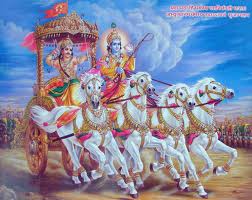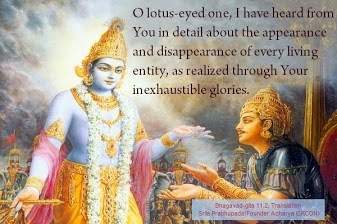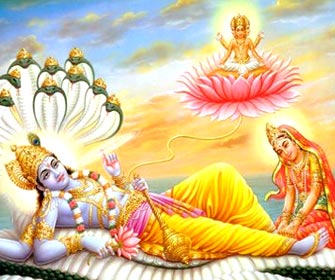Friday, Nov 29, 2013. Srimad Bhagavadgeeta : Chapter-4 : Jnana karma sanyasa yogam. Slokam- 13:

Friday, Nov 29, 2013. Srimad Bhagavadgeeta : Chapter-4 : Jnana karma sanyasa yogam. Slokam- 13. "Caturvarnniyam maya srushtam guna karma vibhagacsah Tasya karttaramapi mam viddhi akarattara avyayam." Guna karma vibhagacsah = According to guna, karma nature, catur varnniyam = Four varnas (colours), Maya srushtam = Created by me, Tasya karttaram api = Though kartha of that, Avyayam mam = Emotionless me, Akarttaram viddhi = Know me that, I don't have karttyatvam ( doer). This slokam was wrongly interpreted since the middle ages by those who are in favour of this social injustice (cruelty) among the citizens --"The Caste System." In Yoga Sastram [ Science of Yoga ( not mean yogasana) ] Trigunas ( Satva, Rajas and Tamas ) are given colours. They are : White for satvam, Red for rajas, Black for tamas. Human beings are the sum of Cittavrutti : (Vasanas + more negative, less positive thoughts). From distance the word thought looks alike,...





